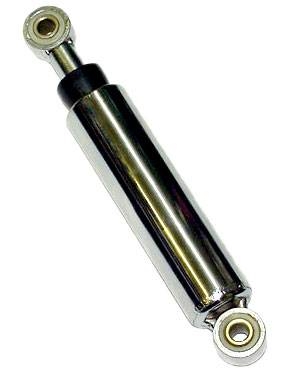
Shock absorbers that are in good condition are a necessity for proper car handling. Drivers have a tendency not to notice when their shocks fail, since this change happens gradually over a period of time.
Replacing your shocks at a regular interval will help keep your car performing like new, but choosing the right shocks can make a big difference.
Determine what type of shocks you should get. Most shocks are built in "twin tube" designs, and are suited to most applications. Ones that are "gas charged" are generally more durable and won't need replacing quite as often. Monotube shocks, on the other hand, are best suited for high performance applications. These are often used for racing cars and off-roading, where above-average amounts of stress will be placed on them regularly (see Resources below).
Research brands. For typical applications, the OEM manufacturer (the same brand that came on the car from the factory) is the best brand to go with. Since the company wants the shocks to last long enough that they won't need to replace them before the warranty is over, these are usually the most durable option. For high performance applications, it is better to step up to a brand that specializes in performance shock absorbers, such as Eibach or Bilstein (see Resources below).
See if any other suspension modifications could be needed to get the most from your new shock absorbers. When replacing yours with OEM parts, this won't be necessary, but the potential gains from performance-oriented parts may be negated if you don't upgrade other components, such as sway bars and springs. When in doubt, ask the product's manufacturer for more information.
Browse retailers. Major retailers such as Autozone have detailed information on the Internet about their product lines, and even allow online ordering with in-store pickup for decreased waiting periods (see Resources below). Make sure the retailer confirms that the shocks you're looking to purchase are compatible with your car.
Install your shocks. Tell the mechanic ahead of time that you will be supplying your own shocks. Since they make a portion of their profits off of the items that they sell, some mechanics will need to adjust their pricing when you supply your own parts. Oftentimes, a garage will have a policy strictly preventing them from using any parts brought in by the consumer--even if you offer to pay the difference. If your usual shop has such a policy, you may have to do business elsewhere if you want to choose your own shocks. As an alternative, they may be able to special order the shocks for you.